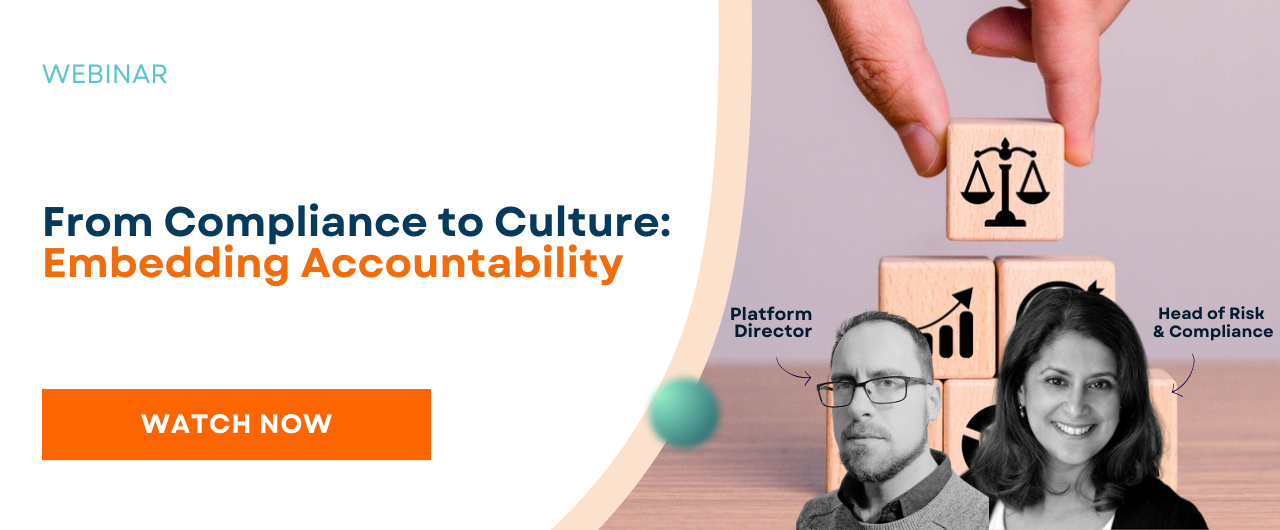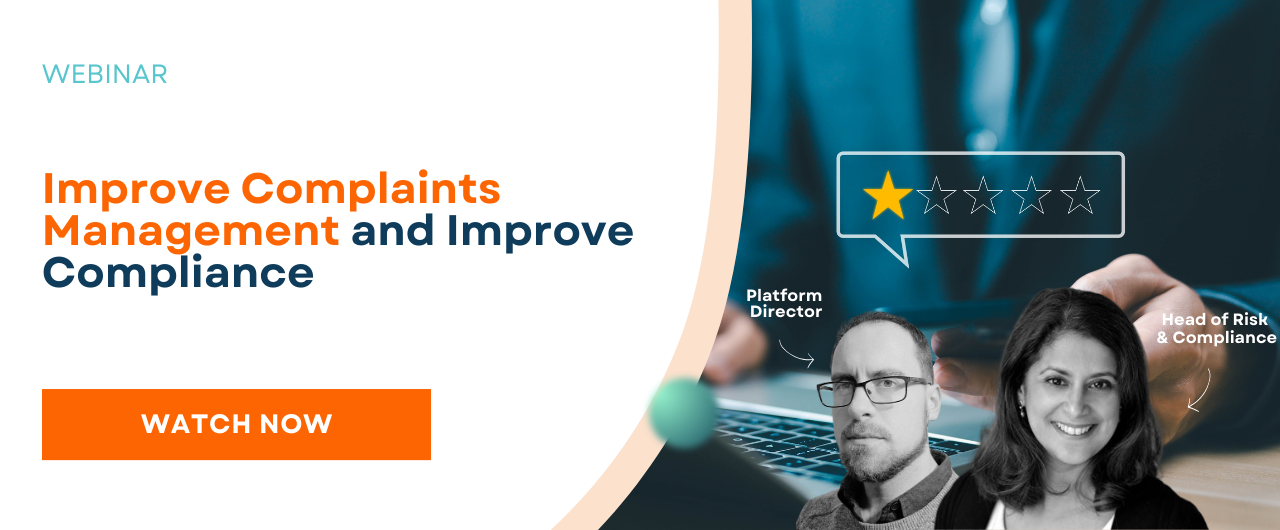regulatory updates
UPCOMING
event
horizon scanning
Whether you’re aiming to reduce manual effort, strengthen controls, or accelerate adoption of regulatory change automation, this session will give you practical examples and real world context that you can apply immediately. Why Attend Regulatory change affects every...
Read More
complaints
SM&CR
UPCOMING
Learn how to demonstrate senior leadership accountability under SM&CR, SEAR and EU rules whilst turning complaints insights into strategic advantage.
Read More
compliance
FCA
CASS
UPCOMING
payment firms
Join us for an exclusive webinar exploring how firms can modernise horizon scanning in an era of accelerating regulatory change.
Read More
compliance,
FCA,
CASS,
payment firms
Tune in on demand for an actionable session that translates global regulatory themes into practical steps your firm can take now. Whether you’re a high growth asset manager, an established payments provider or a firm navigating multiple jurisdictions, this webinar will...
Read More
compliance,
FCA,
risk management,
financial promotions
Discover how Ruleguard is helping firms navigate financial promotions regulation, from the UK Financial Promotions Gateway and oversight of Appointed Representatives to regional approaches. We’ll also uncover common challenges and how to overcome them.
Read More
compliance,
risk management
In this timely webinar, gain fresh insights into the evolving risk landscape and discover how forward-thinking strategies and technology can give your firm a competitive edge.
Read More
accountability,
compliance,
culture,
SM&CR,
AI
In this timely webinar, Ruleguard explores the international focus on individual accountability, ethics and conduct in financial services.
Read More
financial promotions,
Consumer Duty,
Product Governance,
AI
This session examines the evolving expectations placed on firms under the UK’s Consumer Duty and the impacts upon consumers. As global markets become more interconnected, this discussion will highlight why consumer-centric strategies are not just a compliance...
Read More
compliance,
complaints
“Complaints data is one type of data firms can use to understand the outcomes their customers are experiencing.” FCA Complaints & Root Cause Analysis. The UK regulator continues to urge firm to use their complaints data to address poor outcomes and identify areas of...
Read More
compliance,
bribery,
conflicts
Priscilla Gaudoin, Ruleguard's Head of Risk & Compliance explores the grey areas where seemingly small gestures can spiral into major compliance issues, through the lens of practical case studies, real-world vulnerabilities, and recent regulatory scrutiny.
Read More
compliance
Priscilla Gaudoin, Ruleguard's Head of Risk & Compliance explores some of the common pitfalls of compliance monitoring. How can technology and continuous compliance tracking move your firm from reactive to proactive management?
Read More
operational resilience,
round table
Building Operational Resilience Together This event is designed for professionals in financial services who are navigating the complex landscape of operational resilience. With insights from regulatory developments, industry best practices, and real-world solutions,...
Read More














.png?width=400&height=166&name=Compliance%20Monitoring%20White%20Paper%20(1).png)










































.png)
